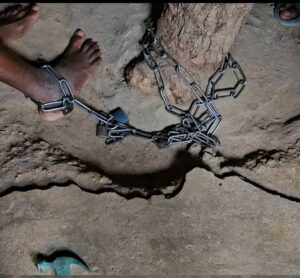Tanzania has witnessed fresh unrest following a disputed general election, and among the incidents reported is the looting of popular singer Juma Jux’s fashion store. The chaos broke out on Thursday as protesters took to the streets, accusing authorities of manipulating the election results. They claim key opposition figures were unfairly disqualified and detained, leading to calls for the cancellation of the election outcome.
Amid the protests, rumours began spreading online that Juma Jux’s luxury fashion store—allegedly worth $780 million—had been set on fire by angry demonstrators. The claim gained traction after an X user, Bolaji Fesomade, posted about the incident, sparking concerns among fans and followers of the artiste. However, the report quickly faced scrutiny as more details emerged from reliable sources close to the singer.
In response to the online claims, Juma Jux’s wife, Priscilla Ojo, took to Snapchat to clarify the situation. Contrary to reports of arson, she confirmed that the store was looted by protesters but was not burnt down. Her brief message, “Looted not Burnt,” helped put an end to rumours about the property being destroyed by fire. Supporters of the couple expressed relief that the situation was not as severe as originally feared.
The incident highlights the tense atmosphere currently gripping Tanzania as citizens continue to protest the electoral process. Businesses and personal properties in affected areas remain at risk, with many urging the government to restore calm and resolve political grievances peacefully. The situation has raised concerns over the safety of private assets and the impact of political unrest on the country’s entertainment and business sectors.
As demonstrations persist, many are hopeful that dialogue and swift action from authorities will help restore order. For now, Juma Jux and his family are grateful that the damage was limited to looting rather than a complete destruction of his fashion business. The development serves as a reminder of how quickly misinformation spreads during crisis situations and the importance of verified updates.







